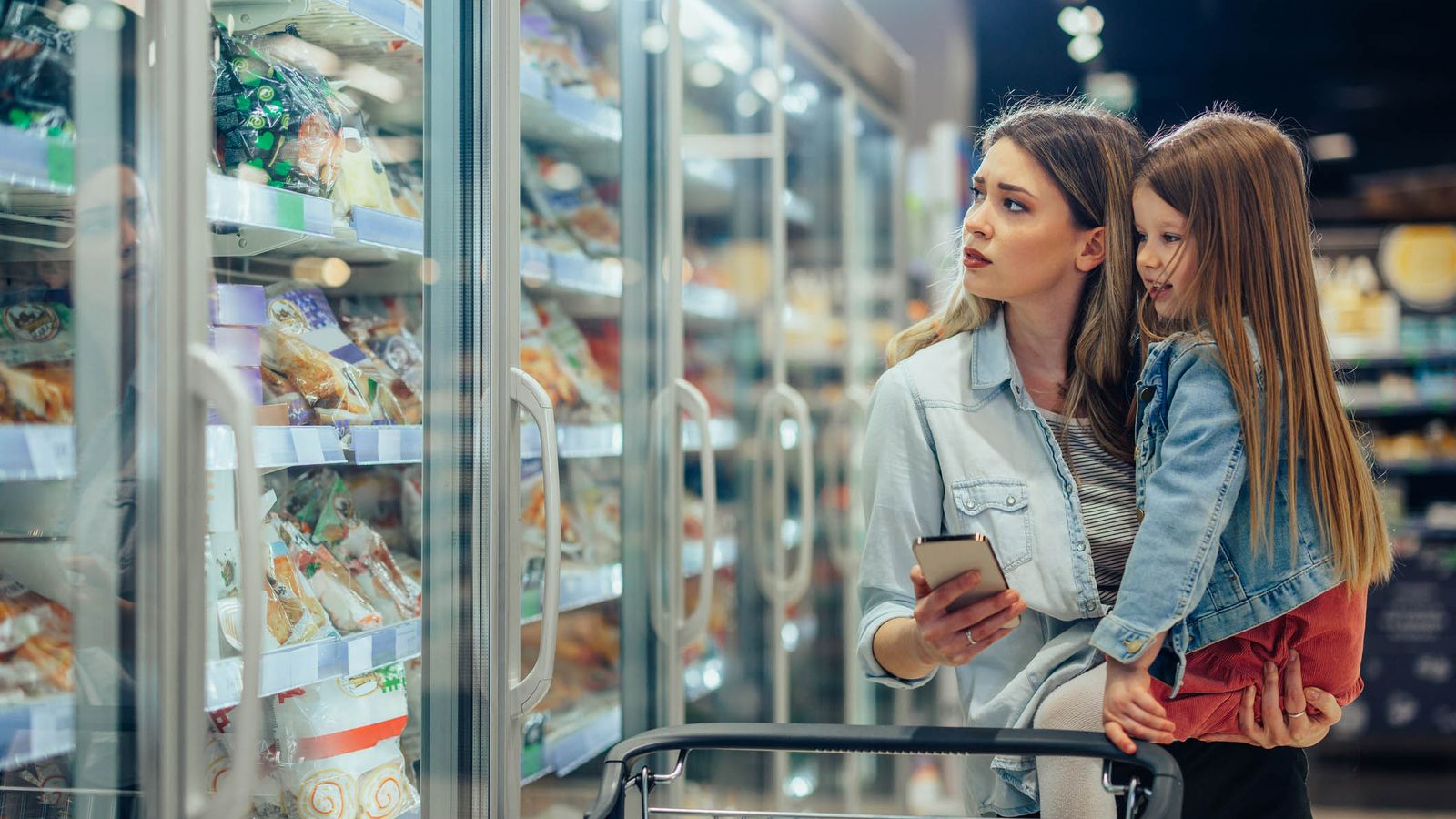Grocery inflation hits new record high – and the worst is yet to come

UK grocery inflation has hit a new record high – with customers now paying hundreds more a year – but there are warnings the worst is yet to come.
As inflation for food hits 17.5%, Kantar Worldpanel reported households are now facing a potential £837 hike in the annual cost of their regular basket – although consumers are increasingly shopping around in a bid to find the best value.
Its latest report said footfall was up in “every single grocer” over the four weeks to March 19, with households now visiting three or more of the top 10 retailers per month on average – with chains “battling it out” to get buyers through their doors.
Read more:
Inflation’s surprise leap with food and booze to blame
Dates revealed for next cost of living payments
But amid concerns over the impact of salad shortages in some UK supermarkets, Kantar said shoppers had instead turned to independents to plug any gaps in availability.
Its head of retail and consumer insight, Fraser McKevitt, said: “Despite concerns about shortages, the number of baskets containing tomatoes, cucumbers or peppers in the 10 major grocers stayed at 17% in March, the same as February.
“For any shoppers who couldn’t get what they wanted in larger supermarkets, the independents stepped in, with the volumes of tomatoes, peppers and cucumbers in baskets rising by 32%, 26% and 21% respectively in these stores.”
‘The worst is yet to come’
Shop prices are now 8.9% higher than they were a year ago, up from February’s 8.4% increase, according to the British Retail Consortium (BRC)-NielsenIQ index.
Advertisement
The rising cost of sugar, coupled with high manufacturing costs, has contributed to price rises for chocolate, sweets and fizzy drinks. Fruit and vegetable prices have also risen as poor harvests in Europe and North Africa limited availability.
But there are warnings the UK has not seen the worst of the surging prices.
BRC chief executive Helen Dickinson said: “Shop price inflation has yet to peak.
“Food price rises will likely ease in the coming months, particularly as we enter the UK growing season, but wider inflation is expected to remain high.”
Click to subscribe to the Sky News Daily wherever you get your podcasts
Mike Watkins, head of retailer and business insight at NielsenIQ, said: “Inflation continues to have an impact on the spending power of shoppers and increased energy bills from April will add more pressure.”
“Since food prices have risen retailers have seen more visits but less basket spend, as shoppers manage their weekly food bills by shopping little and more often and seeking out the lowest prices.
“And as Easter approaches some high street retailers will also be offering discounts and promotions to encourage customers to spend.”
Please use Chrome browser for a more accessible video player
2:26
Unexpected rise in UK inflation
The fastest-growing supermarkets
Mr McKevitt said shoppers were increasingly taking advantage of store loyalty cards, with nine in ten consumers having one in their wallet, while shoppers are also picking more own-label lines, sales of which are up by 15.8% during the period compared to last year.
But he added: “People are keeping some space in their baskets for the brands they know and love. Outside the discounters Aldi and Lidl, branded goods still make up 52% of the market and sales grew by 7.2% over the past month, the fastest rate we’ve seen since February 2021.
Kantar said Lidl was the fastest growing supermarket with sales rising by 25.8%, earning it a market share of 7.4%.
Tesco remains Britain’s largest grocer with a 26.9% share of the market, while Sainsbury’s is on 14.8% and Asda 14.3%, according to the data.